Subscriber Benefit
As a subscriber you can listen to articles at work, in the car, or while you work out. Subscribe NowIn mid-December, six intellectual property attorneys walked out of one law firm, boarded the elevator in their downtown Indianapolis office building and pushed the button for a competing law firm on the 19th floor.
Thus, Frost Brown Todd bolstered its Indianapolis IP practice group by luring the entire intellectual property team from SmithAmundsen’s Indiana office. The move underscored what law firms are saying is a competitive job market where experienced lawyers are the hottest commodity.
Through 2018, Indianapolis firms added newly minted lawyers to their stables, as well as lateral hires at the associate, of counsel and partner levels. The recruitment and employment offers were driven by client needs and increasing workloads, and looking at what’s ahead for 2019, managing partners and practice group leaders expect hiring to continue.
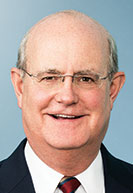 Tanner
TannerFaegre Baker Daniels LLP announced in December the hiring, firmwide, of 30 new associates who all graduated from law school in 2018. The Indiana offices received the bulk of the new hires, with 10 joining the Indianapolis location and one settling into the Fort Wayne office.
Joe Tanner, leader of Faegre’s product liability and environmental group of more than 130 lawyers, said the onboarding of new associates was consistent with hires from previous years.
Tanner is “pretty bullish” on 2019 and anticipates law offices will be looking to add attorneys. However, he echoed many when he noted that in the hiring process, finding a lawyer whose character and work habits align with the firm’s culture is just as important as that lawyer’s skill and knowledge.
“It’s not just about hiring great lawyers,” Tanner said. “It’s about hiring great lawyers who are a great fit.”
 Lowe
LoweJeffrey Lowe, global practice leader of Major Lindsey & Africa’s law firm practice, expects lateral hires will continue to dominate the job market. Snatching a productive partner from another firm is an easier way to grow a legal practice than hiring and training new associates or undertaking the difficult task of merging with another firm.
Although experience is valuable, Lowe said the most important asset firms are interested in is the business lateral hires bring. The clients and work a seasoned attorney will arrive with are key hiring considerations.
“There’s a lot of attorneys with experience, but only so many with a profitable book of business,” Lowe said. “For better or worse, firms are more focused on the book of business than experience.”
Lateral expectations
 Wilson
WilsonAs member-in-charge of Frost Brown Todd’s Indianapolis office since 2015, Heather Wilson has prioritized growth. Specifically, the Circle City operation is looking to expand the capabilities of the office and balance its litigation component by adding attorneys to the practice areas that are more transactional in nature. Intellectual property was part of that focus because of what the office sees as the opportunities for IP in Indianapolis, Wilson said.
Wilson was especially attracted to hiring the SmithAmundsen intellectual property group led by attorney Connie Lindman because the lawyers on that team already had experience working together. Collaboration across practice groups, as well as offices in different locations, is central to Frost Brown Todd’s culture. Attorneys, whether just starting their careers or coming in with significant experience, are expected to cooperate and work jointly with the other lawyers throughout the firm.
Also, Wilson said, the lateral hires are expected to bring business. Not only does the firm want these attorneys to come with their own clients, but it also wants the laterals to integrate their clients and cross-sell them to the other practice groups. IP clients who have needs for other legal services, such as labor and employment or real estate, can be directed to other attorneys within the firm.
That platform at Frost Brown Todd, which will allow the new IP attorneys to refer their clients to other practices and take referrals from other attorneys in the firm, helped convince Lindman to join the firm. In 2013, Lindman and her IP colleagues Dennis Schell and Eric Lamb helped open the SmithAmundsen Indianapolis office after their previous firm, Stewart & Irwin, closed.
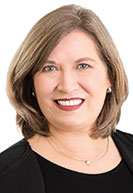 Lindman
LindmanThey decided to move, Lindman said, because of the “great work” being done at Frost Brown Todd and the deep bench of legal expertise at the firm.
At Faegre, new attorneys are also an integral part of the hiring strategy. Tanner said the practice groups, just like sports teams, need people of different skill levels to cover all the bases. Tanner, himself, enjoys working with younger attorneys and says he learns from them, finding they often have a different, fresher perspective.
When recruiting, Faegre looks for new attorneys who are thinking about their careers long-term and who will work well on a team, or, as Tanner explained, value “we over me.” Once hired, the firm retains them by providing experience — taking them to hearings and depositions and encouraging them to get to know their colleagues and clients.
“Most people,” Tanner said, “get passionate about their job because of what they do, who they do it with and the sense of accomplishment that comes from helping people solve their problems.”
Culture and compensation
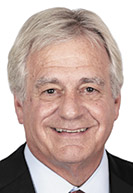 Stitle
StitleAt SmithAmundsen’s Indianapolis office, managing partner Stephen Stitle said his firm is still recruiting associates and partners. The loss of the IP team is not because of a loss of business, but is a reflection of a shift in priorities. The focus now is on practice groups such as labor and employment, health care and litigation, which have grown dramatically in revenue and people.
Indeed, Stitle maintains that anytime an office grows as quickly as SmithAmundsen has in Indiana, a loss of people is to be expected. Even so, the firm continues to field calls and make offers in what Stitle called a “very competitive market.” New hires are lured by the combination of the firm’s culture, the opportunity to grow their practice and the compensation structure.
“You don’t buy a lateral,” Stitle said of hiring an experienced attorney. “Laterals make the decision they want to do something else somewhere else.”
Making a lateral move can be a family affair, said Paulette Yanow Valentin, chief marketing officer at SmithAmundsen. She has, at the request of the recruits, met with spouses to answer their questions about the job. Once an experienced attorney decides to join the firm, Valentin has established a program to get them integrated and acclimated so they can feel like they are part of the firm and can start growing their practice.
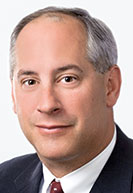 Messaglia
MessagliaKrieg DeVault LLP has been following its goal of “thoughtful growth” and primarily bringing on attorneys who have at least a few years of experience, according to managing partner Michael Messaglia. Increased business from clients is fueling the hiring as the firm requires more attorneys to help with the work, but when looking to bring on new partners and associates, the two most important things considered are whether the job candidate fills a need the firm has and whether the candidate fits into the firm’s culture.
The firm, Messaglia said, is not looking to grow just for the sake of growing. It wants to grow thoughtfully to address client demands and desires. Just as key is the new hires sharing the firm’s values.
“If there is not a cultural fit, it ultimately leads to dysfunction,” Messaglia said. “Ultimately it does not allow us to provide the best client service.”
The focus on finding new hires who fit with the mindset and personality of the firm is a top goal of law offices. Managing partners see the market exerting an upward pressure on compensation, but they are not relying on paying the highest salaries to lure attorneys. Instead, they say the firm’s culture, in combination with the opportunity to do interesting work, grow their practice and make a competitive salary, is attracting the attorneys they want at their firms.
Messaglia said if compensation is paramount to the job candidate, the candidate and the firm are probably not a good fit for each other.
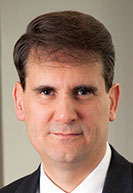 Kremp
KrempThe people and the work environment at Wooden McLaughlin LLP lured Joseph Kremp to return. He started with the firm as a young attorney in 1994 and jumped to another firm before stepping into a couple of in-house roles, eventually coming back to Wooden McLaughlin in 2001.
That experience underscored the importance of culture, but as a member of Wooden McLaughlin’s management committee, Kremp knows the firm also has to competitively compensate its attorneys. It rewards performance, offering bonuses based on productivity and merit, while also allowing work-life balance.
That recipe appears to be bearing fruit. Wooden McLaughlin expanded to Evansville in 2015 and opened an office in Bloomington in 2018. Also, during 2017 and 2018, the firm hired 15 additional attorneys.
When hiring, the firm looks for candidates who have “intellectual horsepower” and will fit into a collegial atmosphere, connecting and working well with the other attorneys in the office, Kremp said. To retain its attorneys, Wooden McLaughlin follows the same formula by keeping them intellectually and personally engaged.
“Our focus is to provide a practice environment where attorneys have the opportunity to work on interesting, complex matters without sacrificing activities outside the firm,” Kremp said.•
Please enable JavaScript to view this content.
